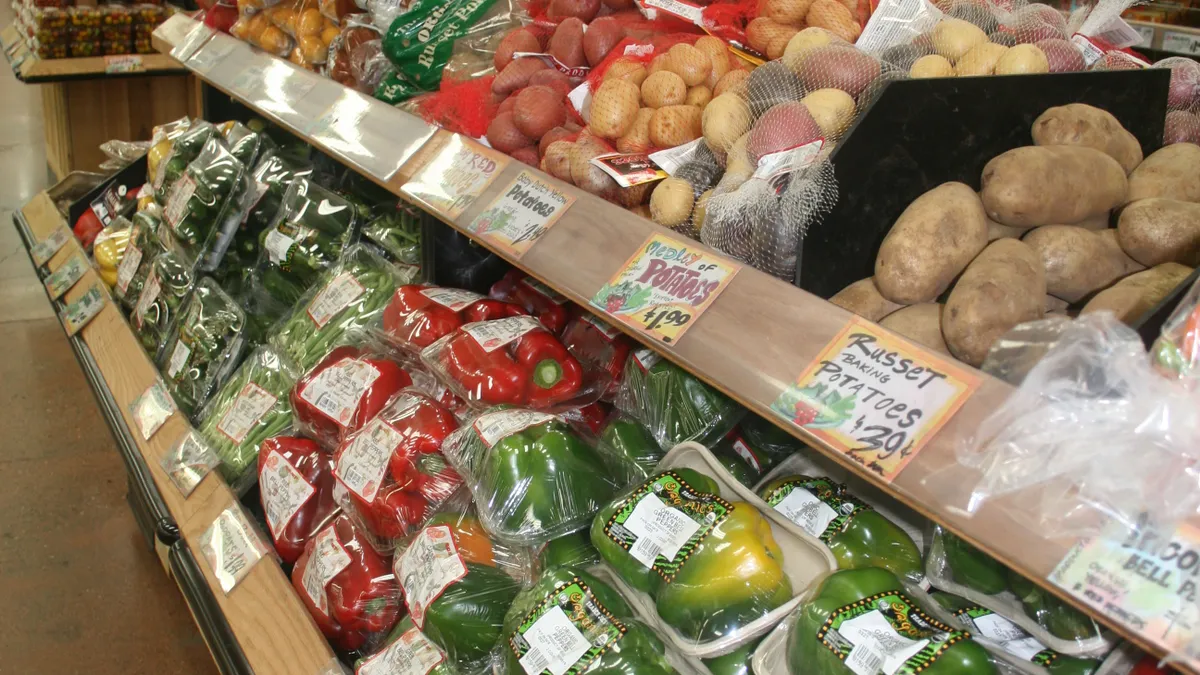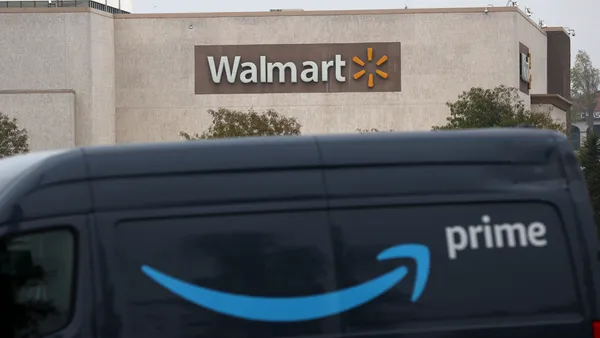Dive Brief:
- Trader Joe’s has pledged several sustainable packaging initiatives following pressure from consumers and environmental groups. The chain said it will sell fewer produce items in plastic packaging, swap out Styrofoam trays in the fresh meat department with recyclable PET1 trays, replace plastic greeting card sleeves and floral wrapping with renewable alternatives and ditch the foil and plastic pouches for its tea bags. With the new measures, which were announced in the February issue of its Fearless Flyer circular, Trade Joe's hopes to cut one million pounds of plastic each year.
- The retailer has already been taking incremental steps to address its plastic use, including phasing out single-use plastic bags. It has also swapped out Styrofoam produce trays for compostable options and asked its vendors to avoid using certain chemicals in packaging including Polystyrene, Phthalates and BPA.
- "Taking into consideration our customer feedback and our desire to be great neighbors, we have been taking a careful look at our packaging and the opportunities that exist to make improvements, with respect to sustainability," the company said in a Dec. 31, 2018 announcement. Last year, an online Change.org petition asking Trader Joe’s to change the store’s packaging policies garnered 100,000 signatures.
Dive Insight:
As food waste has cemented its status as a crucial sustainability concern, stakeholders and consumers have broadened the dialogue to include packaging waste, too.
Meal kits have become a target due to what many consumers see as an excessive amount of cardboard, insulation packs, plastic bags, boxes and jars each kit includes for ingredients. Washington State is considering a law that would require companies to join a plastic packaging stewardship organization by 2022 or refrain from using certain packaging materials entirely.
Trader Joe’s decision to tackle plastic comes amid this shifting consumer sentiment. In addition to the Change.org petition, the chain's leadership faced pressure from GreenPeace to introduce more recyclable and renewable packaging to its stores, according to environmental news site Green Matters.
It also comes as competing grocers step up their efforts to curb packaging waste. Walmart announced a plan to reduce plastic waste last month while also planning to boost its use of consumer-friendly recycling labels. The world’s biggest retailer aims to achieve 100% recyclable, reusable or compostable packaging for its private brands by 2025 while labeling all food and consumable private brand packaging with the How2Recycle label by 2022, among other initiatives.
Kroger, meanwhile, has undertaken a "Zero Hunger, Zero Waste" initiative that includes phasing out all single-use plastic bags by 2025.
Trader Joe’s has built a cult following based on its unique product offerings, friendly staff and popular private label brands. Reducing its plastic footprint will only serve to enrich the already powerful in-store experience that its demographic craves.














